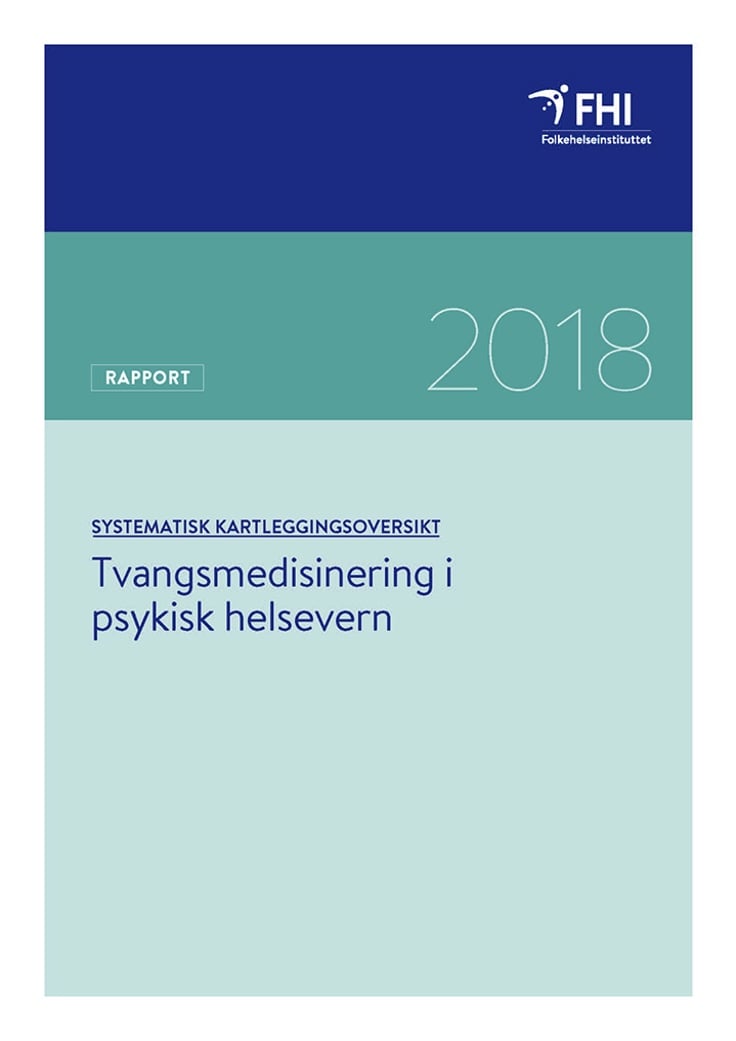Coerced medication in mental health care – a systematic mapping review
Mapping review
|Published
We performed a systematic mapping review where we searched for systematic reviews and primary studies of coerced medication for adult patients.
Key message
The Norwegian Institute of Public Health was commissioned by Centre for Medical Ethics at the University of Oslo to search for empirical research literature on coerced medication in mental health care. We performed a systematic mapping review where we searched for systematic reviews and primary studies of coerced medication for adult patients.
The search for primary studies resulted in 1601 references. We read 77 studies in full-text and included eight reviews and 25 primary studies. The population was mainly patients with schizophrenia, bipolar disorder and psychosis. We categorised coerced medication as: 1) short-term drugs used as coerced means, 2) long-term coerced treatment with drugs, and 3) coerced medication in out-patient institution.
Among other things, the authors of the included reviews described:
- There has been done more research on seclusion and mechanical restraints than on foreced medication.
- Assault and risk of violence was the most common cause of forced medication.
- Adherance to treatment with antipsychotics depends on the patient's experience with efficacy, side effects and the use of other drugs.
- Patients who refused psychotropic medication in acute inpatient psychiatric care were longer in hospital, whereas involuntary medication was associated with shorter admissions.
- The evidence for the efficacy of involuntarily outpatient treatment is inconclusive, and there is a need for more randomized controlled studies with high methodological quality
We also identified 25 possibly relevant primary studies that were not included in the identified reviews. These 25 primary studies were about: 1) Variation in practice, 2) The efficacy of coerced medication, 3) Prevalence and risk factors, 4) User satisfaction and user experience and 5) Health personnel's attitudes and experiences.


